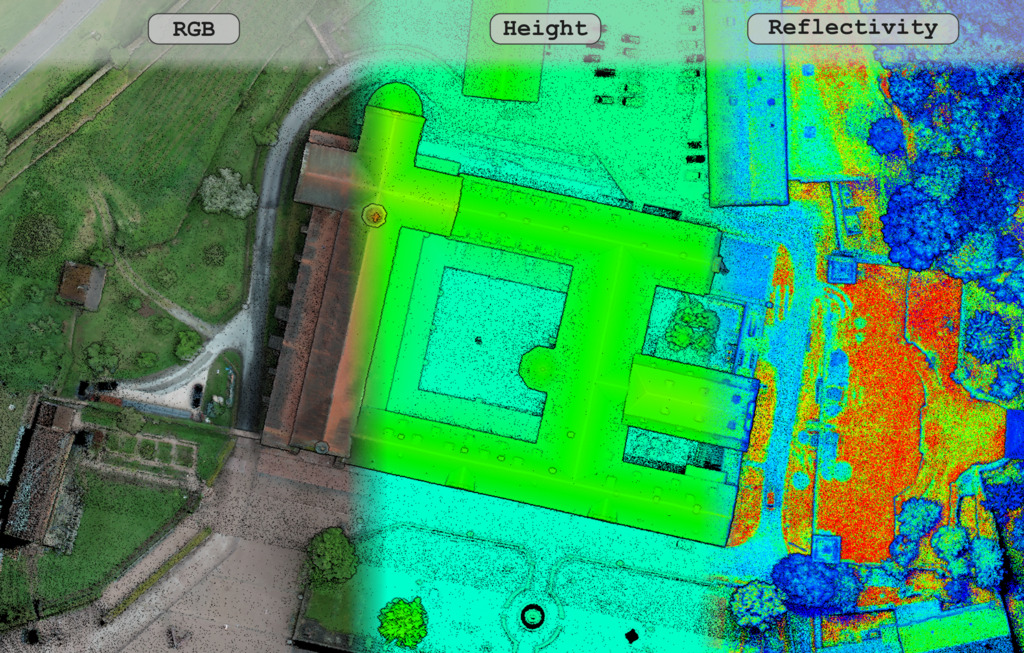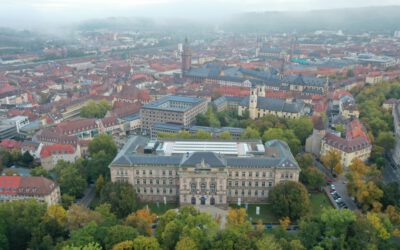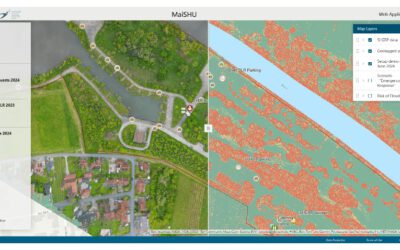The potential of UAS data for mapping cultural heritage sites was discussed in the past months with colleagues associated with the UNESCO world heritage activities by our postdocs Dr. Mirjana Bevanda and Dr. Sarah Schönbrodt-Stitt. Based on these discussions further linkages to actual heritage site managers were established and a first pilot study was setup of a monastery close by. Our postdocs discussed the overarching goal and outline with the respective managers and the state to discuss the projects’ framework and envisioned outcome. Our UAS team pilots covered the area last week, Antonio Castaneda, Elio Rauth and Jannis Middash conducted the data collection and completed a successful mission at Kloster Bronnbach. We gathered various data types, like lidar scans, high-res RGB, thermal, and multispectral images, to better understand the area’s features. The Kloster Bronnbach, known for its historical significance and diverse landscape, provided an ideal location for our mission. With our UAS, we captured detailed aerial views, recording every aspect of the terrain below. Our datasets, ranging from lidar scans to RGB images, offer valuable insights into surface features. These datasets hold great potential for discriminating between different features with remarkable clarity.
In the next steps the data will be analysed with regard to world heritage relevancy and further meetings of Dr. Sarah Schönbrodt-Stitt and Dr. Mirjana Bevanda with the partners of the respective organizations will define the further collaborations.









